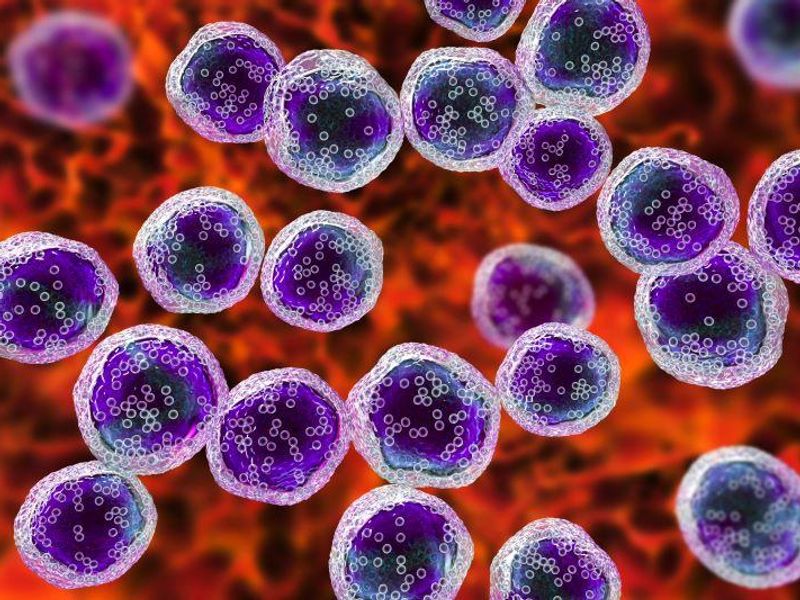39 percent of patients had a complete response, with median time to complete response of 42 days
By Elana Gotkine HealthDay Reporter
MONDAY, Dec. 19, 2022 (HealthDay News) — The bispecific antibody that recruits T cells to tumor cells, glofitamab, is effective for patients with relapsed or refractory diffuse large B-cell lymphoma (DLBCL), according to a study published online Dec. 11 in the New England Journal of Medicine to coincide with the annual meeting of the American Society of Hematology, held from Dec. 10 to 13 in New Orleans.
Michael J. Dickinson, M.B, B.S., from the Peter MacCallum Cancer Centre in Melbourne, Australia, and colleagues enrolled patients with relapsed or refractory DLBCL who had received at least two lines of therapy previously in the phase 2 part of a phase 1/2 study. To mitigate cytokine release syndrome, patients received pretreatment with obinutuzumab, followed by fixed-duration glofitamab monotherapy (12 cycles total). A total of 154 patients received at least one dose of any study treatment.
The researchers found that 39 percent of the patients had a complete response at a median follow-up of 12.6 months. Among 52 patients who had previously received chimeric antigen receptor T-cell therapy, the results were consistent (35 percent had a complete response). The median time was 42 days to complete response. At 12 months, 78 percent of complete responses were ongoing. Progression-free survival was 37 percent at 12 months. Overall, 9 percent of the patients had discontinuation of glofitamab due to adverse events; cytokine release syndrome was the most common adverse event (63 percent of patients). Sixty-two percent of patients had adverse events of grade 3 or higher.
“Treatment with T-cell-engaging bispecific agents will improve outcomes for patients with lymphoma and, once again, will show the extraordinary potential of the immune system in the treatment of cancer,” writes the author of an accompanying editorial.
Several authors disclosed ties to pharmaceutical companies, including F. Hoffmann-La Roche, which funded the study.
Editorial 1 (subscription or payment may be required)
Editorial 2 (subscription or payment may be required)
Copyright © 2022 HealthDay. All rights reserved.








